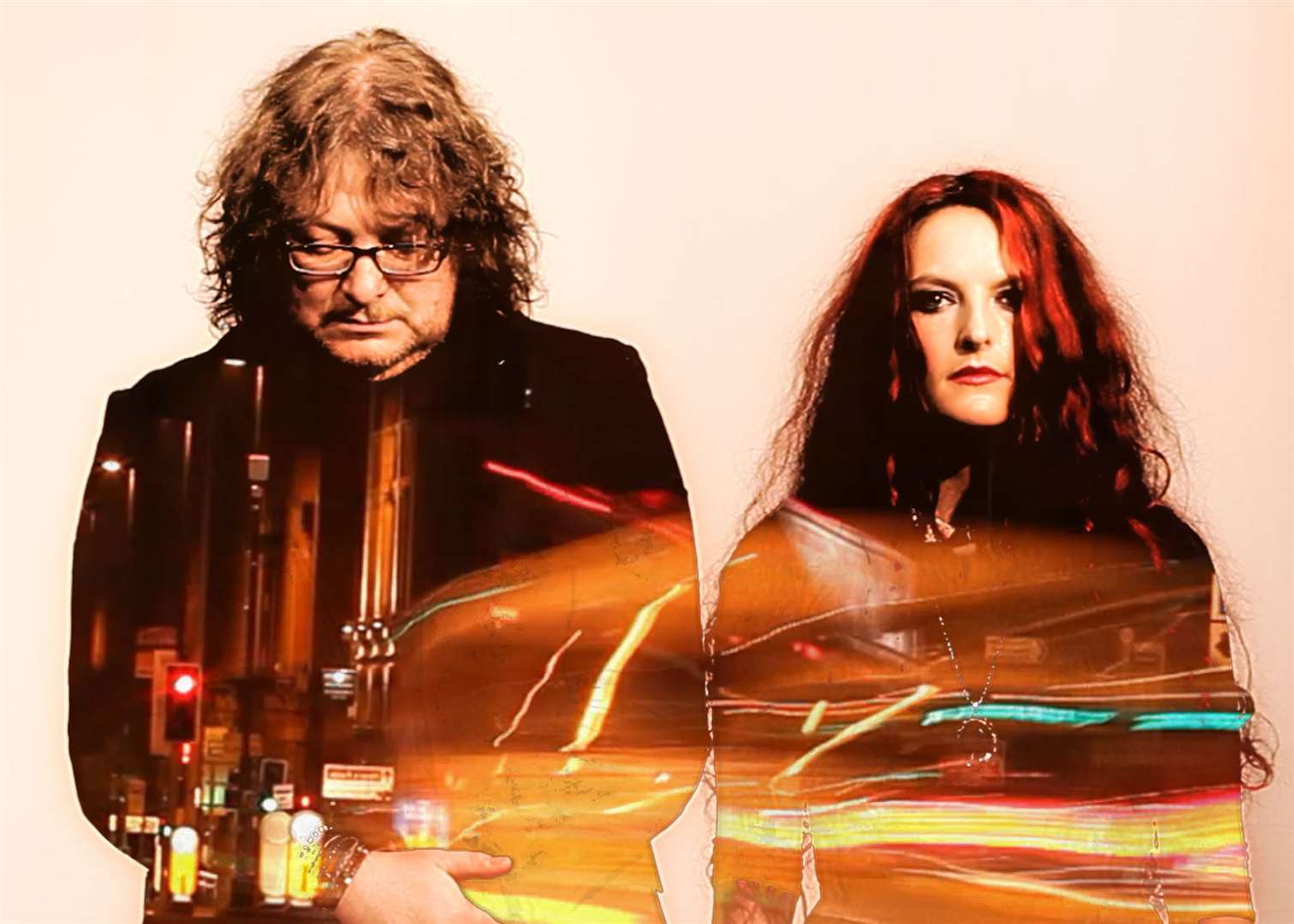The Blackheart Orchestra - 'Hotel Utopia'
Allister Spence • 13 September 2022
Album Review

It’s always difficult to listen to something by a band you’ve never heard of. It’s that awkward moment when a friend hands you an album by a band that they are mad keen on, and you don’t know them at all. You start to play it, and, on the plus side, you have a virgin set of ears waiting expectantly to find out if it’s as good as they are telling you. Meanwhile, on the other hand you are sitting worrying that you might just really hate it and then how do you politely wriggle out of that awkward spot.
I’m happy to report that the latter situation didn’t materialise between The Blackheart Orchestra and myself. I was/am totally bowled over by this album. The artists website tells us that this is the world’s smallest orchestra. To quote it this is ‘two people playing 13 instruments between them, Chrissy Mostyn and Rick Pilkington perform in what has been described as a ‘musical space station’ of instruments including guitar, bass, percussion, mandola, piano, organ, Omnichord and their collection of vintage synthesisers.’
The album opens with ‘The Tide,’ and ‘Under the Headlights.’ These are lyrically evocative laying in the groundwork for the albums concept, which the press release says explores the concept of the afterlife following their last album, ‘Mesmeranto,’ dealing with death. There’s an almost new age sense to these two songs. At times, musically, I was put in mind of Enya. Her Celtic-folk sound seems to fit closely with some of the instrumentation.
It’s not an easy album to categorise, which is no bad thing. Influences seem to pop up all over the place. Kate Bush springs to mind quickly. The third track on the album, ‘Safe,’ feels particularly like a song Ms Bush might have recorded around the time of ‘Never Forever.’ The use of a harpsichord(?) to underscore this track is simply gorgeous.
A more contemporary comparison comes to mind on the track ‘The Warning.’ The vocals on this track initially reminded me of Bjork, particularly her mid-nineties period of ‘Debut,’ and ‘Post.’
There’s a power beginning to build at this point in the album. Four tracks in and some of the lighter touches of the first few tracks are slipping. ‘Astronaut,’ moves the album on from the almost pastoral sense the album had created so far. The track opens and you can sense the band almost tugging at the leash. When they hit the chorus thy let the leash go and the track kicks in and you really get the first hint that this is a rock record.
‘Alive’ follows and slows things down a little in tempo. This track makes clear the topic at hand with its refrain of ‘Will I see you on the other side?’ This song returns us to Kate Bush territory, think ‘Breathing’ and you’re going to get a feel for this song.
‘A Dangerous Thing,’ broods and builds and that sense of darkness culminates in a searing sax solo and a growing chorus of chanting voices that build under the sax until they reach a crescendo above it at the close of the track.
‘Casting Spells’ is one of the lighter moments musically. It has a poppy skipping rhythm that propels the track along towards it chorus. They lyrics raise a question as to whether what we do in life counts to whether we are granted an afterlife.
Up until ‘Dust’ Chrissy Mostyn handles lead vocals. ‘Dust’ sees Rick Pilkington take over for this track. Underscored by a piano melody reminiscent of the shapes theme in John Carpenter’s Halloween the song asks if ‘we’ll be nothing but dust.’ This is a musically sparse track and feels quite eerie.
‘Atlantic’ sees Chrissy Mostyn back on lead vocals, which she handles for the remainder of the album. This song really does have a Kate Bush vibe, think ‘Cloudbusting’ from ‘Hounds of Love.’ It’s a lighter moment with beautiful instrumentation mixing synth sounds with strings and some lovely orchestration.
With hardly a pause we head into ‘Translucent.’ It starts quietly and then the chorus is the heaviest moment of the album so far.
The penultimate track, ‘Raise Your Heart,’ is one of my favourite tracks on the album. There’s an upbeat feeling to this track. The song speaks to the lonely, the sad, the suffering and then the chorus asks us to raise our arms and the band will ‘raise our hearts.’
The album opens with ‘The Tide.’ By track thirteen all the questions and feelings come to a fitting climax in the epic ‘The Flood.’ This is nine minutes of music that sums up everything that has come before it. Again, at the start, the piano leads the track. In keeping with the water motif, it builds like a wave. Each verse is a little more urgent than the last, each chorus a little more desperate as the Chrissy Mostyn pleads ‘to bring on the flood.’ At the five-minute mark the dam breaks and you feel the track lift itself into a surging instrumental close.
There are many hints of other things here, Peter Gabriel work around the time of his third self-titled album. I’d also note the influence of Steve Wilson/Porcupine Tree, perhaps a touch of Marillion in their Fish led pomp and there’s touches of Cocteau Twins, Jethro Tull, and Pink Floyd in there too, making a heady mix for prog fans.
Ultimately the influences don’t matter. This is a terrific album. I think I’ve played it at least once every day for the past week and I would thoroughly recommend it.
